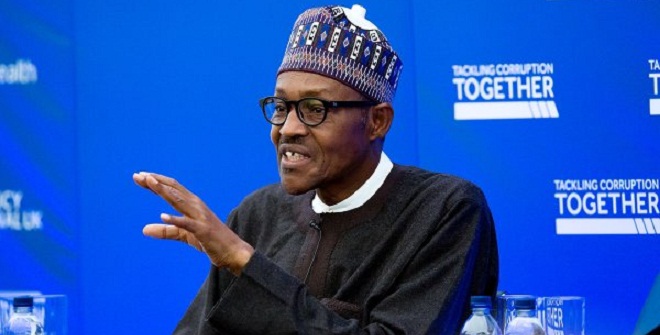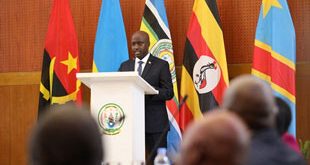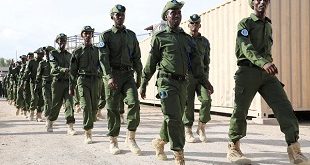
Nigeria’s President Muhammadu Buhari on Sunday pledged to reverse the country’s economic slump as his government also tackles endemic corruption and the security threat from Boko Haram Islamists.
Recession was officially confirmed in Africa’s most populous nation last month, after a second successive quarter of contraction caused by sustained falls in global oil prices.
With inflation currently at more than 17.0 percent and rising, and the naira currency in free fall, Buhari acknowledged “the difficult economic times” and the sacrifices people were making.
In a message for the Muslim festival of Eid al-Adha, he blamed the “cumulative effects of worldwide economic downturn and failure in the past to plan and save for difficult times”.
“Mistakes of the past are affecting everyday life today,” he said in a statement.
But he added: “We are getting security right. We are stopping corruption in its tracks and we will get the economy right by the Grace of God.”
Nigeria’s economic difficulties have laid bare the country’s decades of over-reliance on oil revenue at the expense of developing other domestic industries.
The government has depended on oil export sales for some 70 percent of its revenue but income has dwindled since crude prices began tumbling worldwide two years ago.
A renewal of attacks on oil and gas facilities in the southern delta region this year has compounded the crisis, hitting production.
Buhari has repeatedly blamed past administrations for failing to set aside money, as well as corrupt officials for plundering what he has said were “mind-boggling” sums of public money.
A string of high-profile officials have been put on trial for graft since he took office in May last year while a sustained military counter-offensive in the northeast has pegged back Boko Haram.
Last week, the presidency approved an external borrowing plan from organisations such as the World Bank.
 The Independent Uganda: You get the Truth we Pay the Price
The Independent Uganda: You get the Truth we Pay the Price



